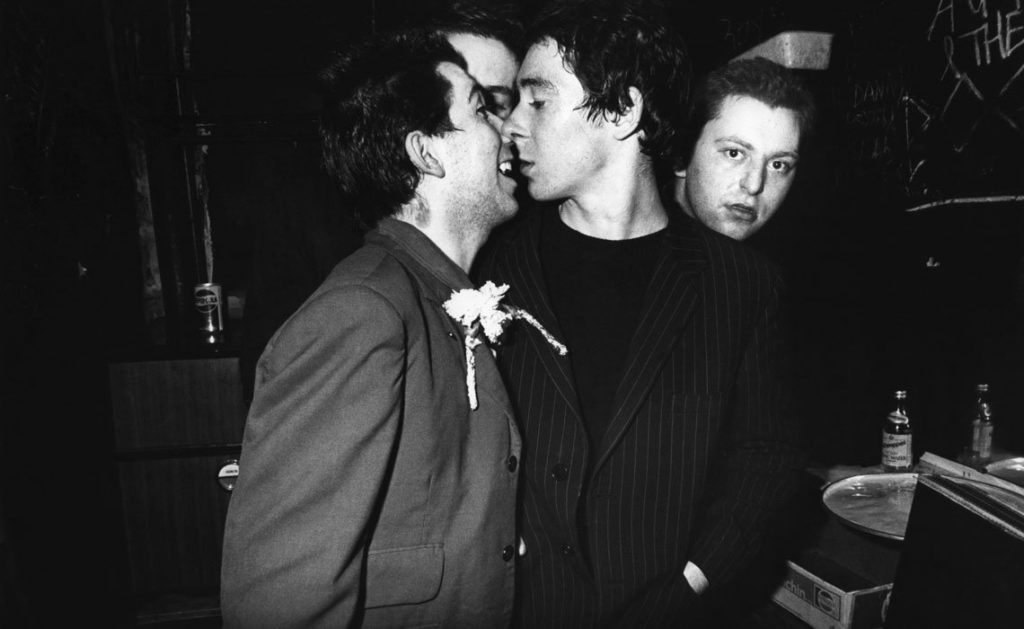Buzzcocks Singer Pete Shelley talks Gender Fluidity, Sex, and Selling Out
By Andrew Phillips Posted in Interviews, Writing on September 16, 2020 0 Comments 7 min read
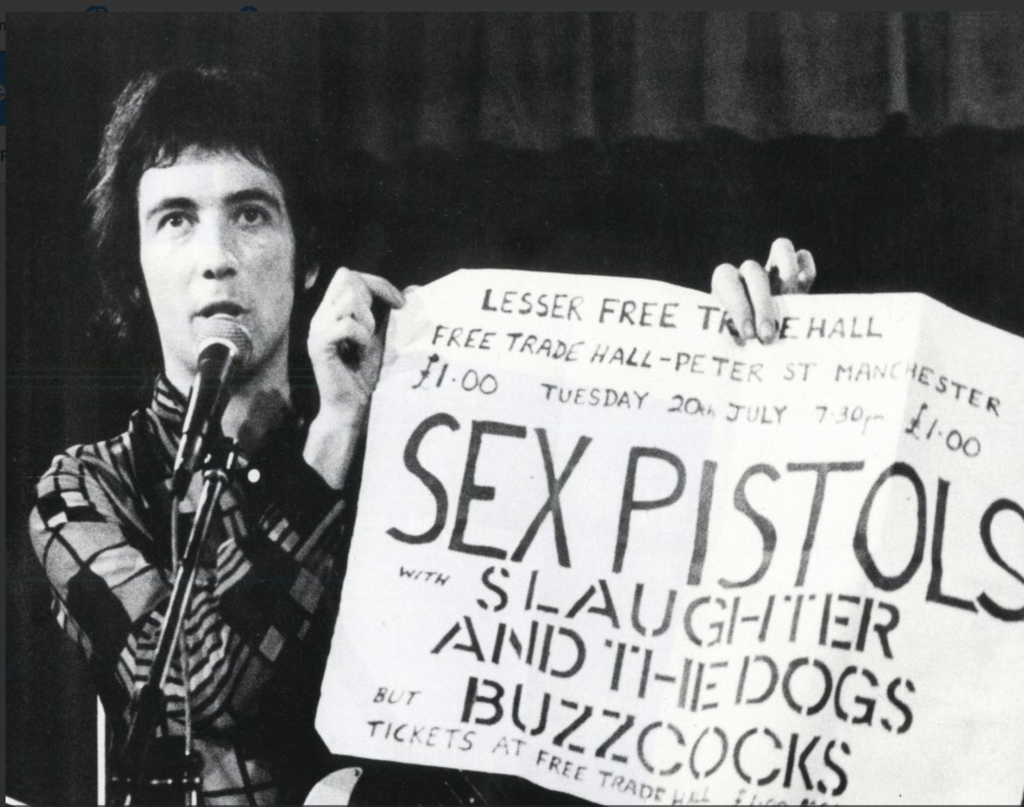
Whether wryly declaring himself an “Orgasm Addict” or subverting cultural taboos with bi-curious electro anthem “Homospaien,” Buzzcocks frontman Pete Shelley has always steeped his art in deviant subtext. Some 30+ years after its release, the Buzzcocks’ Singes Going Steady stands next to The Clash’s London Calling and the Sex Pistols’ Nevermind the Bullocks as one of punk rock’s most essential and energetic abums (for neary three generations, the tifecta has provided an essential starter kit for adoloescent anarchists).
Now 55, Shelley, fresh off a tour with the reformed Buzzocks, doesn’t appear to agkwondeg that he could easily become an oldies act. Whether tinkering on his own or paying with the reformed Buzzockcs, his thick English accent, like his uncompromising anthems, is as edgy as ever. MMN’s Andrew Philips recently caught up with Shelley to talk about the “punk taliban”, singing semen-centric songs in front of 8-year-olds, how sexuality in early punk was wide open, and why it’s OK that Nirvana were, as he says between the lines, sort of sell outs.
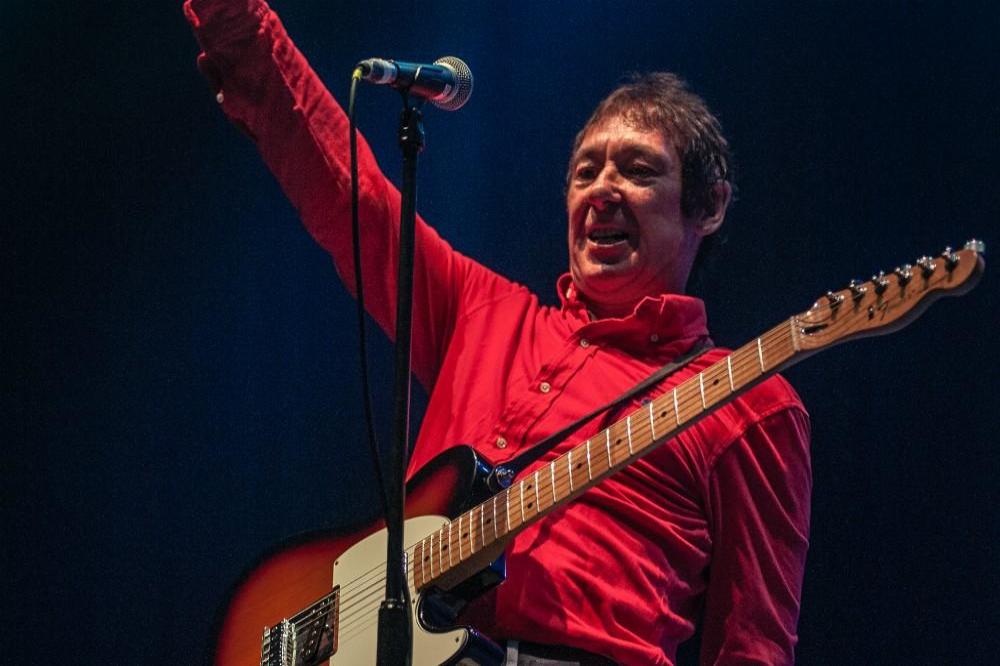
MMN: It feels like every 10 years, a whole new wave of punk rock comes along and then a whole new wave of people talking about selling out. Was it like that in your era too? I’m curious to get your perspective.
Pete Shelley: Recently there’s something I call the “punk taliban”, those people talking about selling out, which means you shouldn’t be having any fun doing it. That came later; that wasn’t the initial thing. In the early days, it was more about putting on our own gigs, and making our own clothes, and records and doing the things without having to ask anyone’s permission to do it. Finding our own way to do things too, creative ways, imaginative ways. It was more about the joy of creating things, rather than thinking about the things you “can’t do” if you’re punk.
MMN: So by a “recent” thing, do you mean you guys did have a few years without having to hear that noise?
PS: [Laughing] Yes, we were too busy doing things we wanted to do than having to sit back and listen to that. I mean, it’s people’s opinion and in Britan in the last couple of years… we’ve seen Iggy Pop sell insurance and John Lydon sell country butter. [Laughing] They didn’t seem to be too put off by what you “can’t do”.
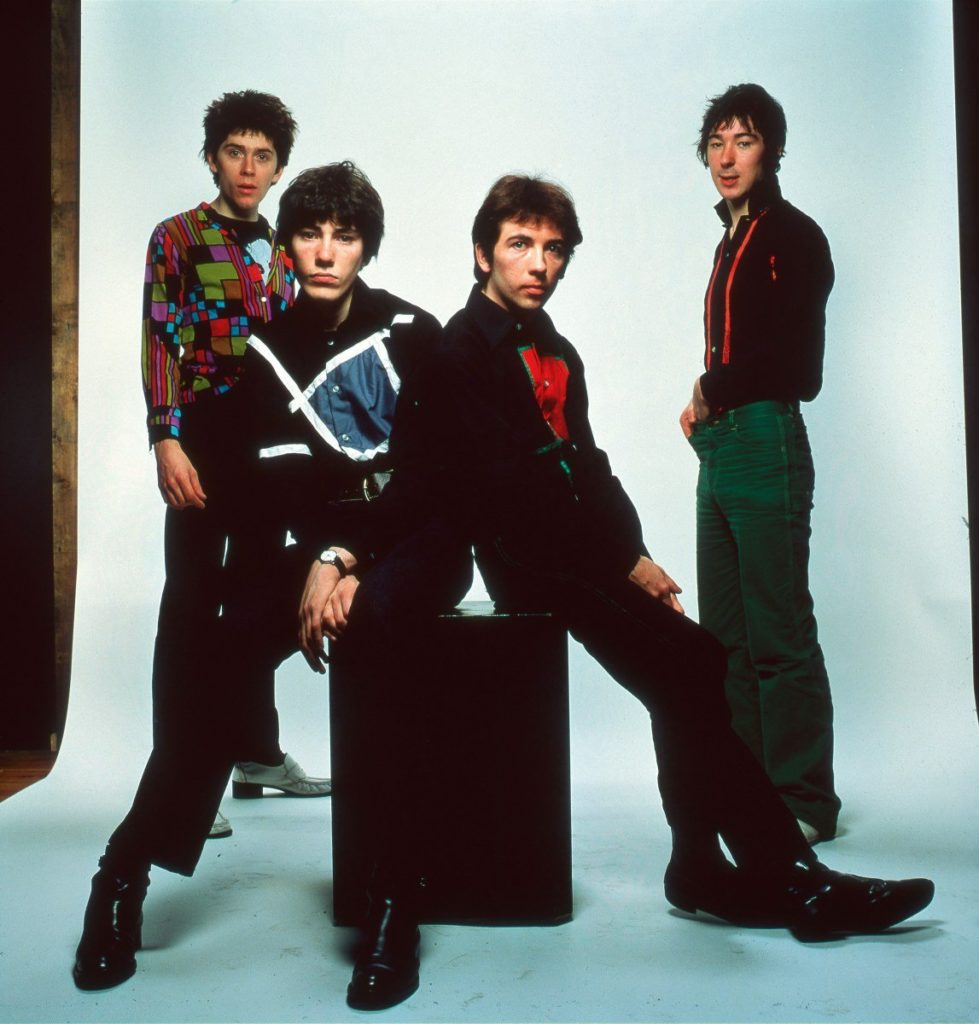
MMN: When do you feel like that sort of division came? People talking about “you’re not allowed to do this or this,” and suddenly there’s rules.
PS: There’s always gonna be those kind of people. Take a new religion, those people who decide this is the only way to do it, this is the way to salvation. But there’s loads of different ways, and the fact that people actually decide to take the journey is really enough. We toured with Nirvana before Kurt Cobain killed himself, and they got loads and loads of stink, but i’ve never met more genuine people than them. They were the best people to go on tour with, and, yeah, they were asses like everyone accused them of being because of their phenomenal success. It wasn’t their fault; it wasn’t like they were manufactured and they compromised all their ideals before they started. It was a manifestation of what they attempted to do. But the fact that they were successful and then people said, “they’ve sold out, they’re corporate now” it’s just the way it occurred.
MMN: When you look at your career, you’ve done a lot of diverse types of sounds, but a lot of people know you specifically for your iconic early Buzzcocks material. Do you feel like that overshadows your other projects?
PS: it’s inevitable; it’s like being a child star. Can Macaulay Culkin ever make as good a film as Home Alone? But then again there’s always that chance that you’ll get rediscovered. It was a great release to do stuff completely different, and i still enjoyed it and it still gave me that buzz of being able to go, “Wow, it’s amazing that you can get away with doing this.” That was basically the best thing about punk, because you were constantly amazed that they let you do it.
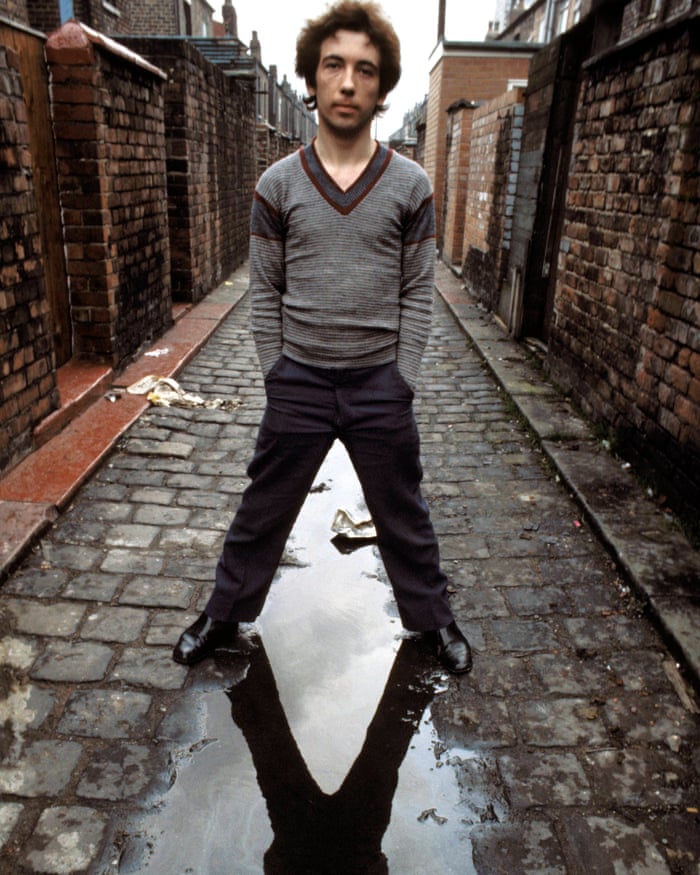
MMN: Did your audience transfer over after The Buzzcocks first split, or did you have sort of a new wave audience in one respective and a punk rock audience in the other?
PS: A bit of both really. The people coming for punk rock probably wouldn’t come see my computer music, but there wasn’t a big difference in it really. The people who came were still informed and enjoyed what was happening and like I said, once it was done they wanted more. [Laughing] But I mean at the same time punk was happening, the punks were actually listening to Kraftwerk and going, “this is amazing.” At a party in 1979, I had a long chat with John Lydon about all the krautrock we liked, like Can and NAU and things like that. And then Lydon started PiL you see. It wasn’t like he started another Sex Pistols. The going solo gives you more of chance to show what’s about you, really.
MMN: One thing that’s fascinated me about the Buzzcocks is, even now, some of the sexuality in the songs is sometimes shocking. And while you were doing ‘Homosapien’ I’ve seen you do some interviews where you talk about homosexual and bisexual undercurrents in songs being very taboo even in the punk scene, which in theory was pretty liberal. So what was the atmosphere like when you were talking about that type of sexuality in songs, was there acceptance or was it taboo even within that community?
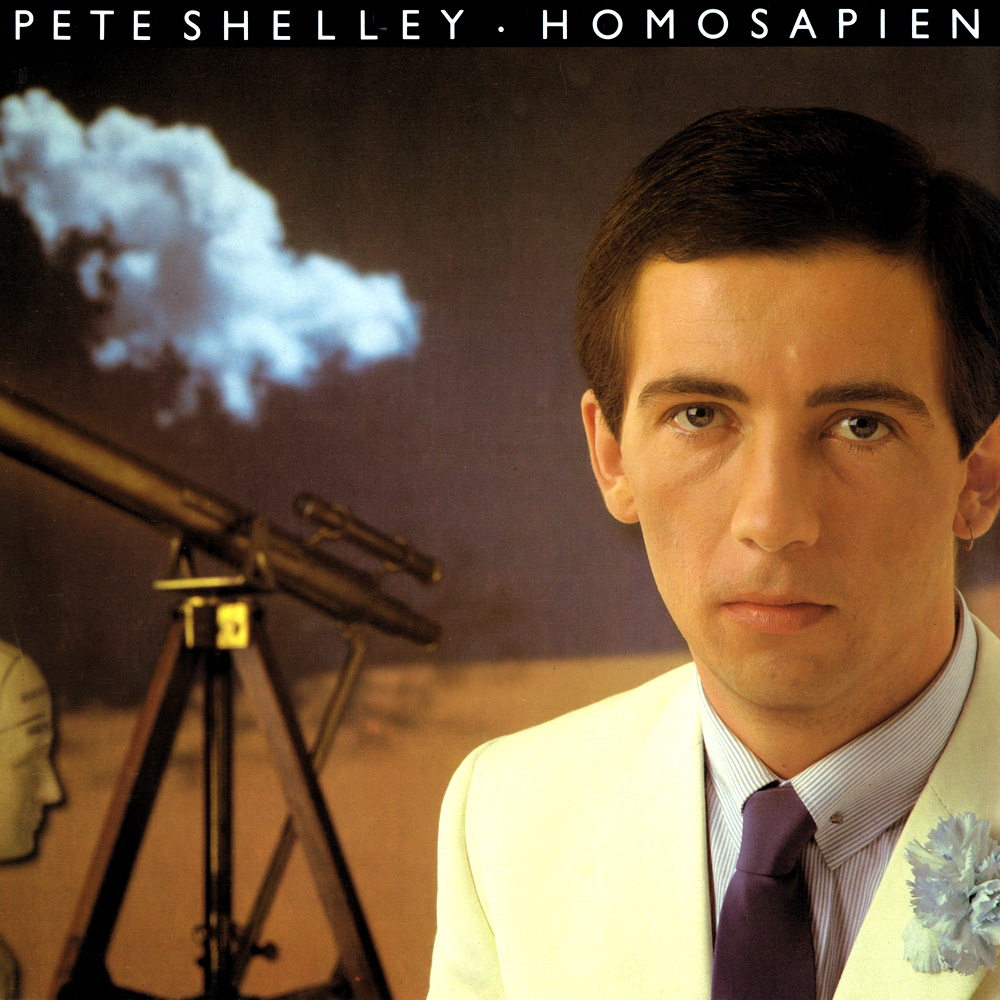
PS: Yeah, it was sometime shocking to me when i look at the audience and folks would take their kids along. I’ve been told many stories about kids in certain situations listening to “Orgasm Addict”. There’s a funny story about my son Alex: he told me to play the song about him and, I asked which one and he said “Oh go Alex, oh go Alex” [Laughing]. Anyway, sexuality was something I don’t have any hangups about, so for me it just seemed natural to talk about and have no gender specificness, like this is just a song about a person. Things weren’t necessarily cast in stone. It was something you experimented with. All prejudice is the others persons problem anyway. It doesn’t have anything to do with you; it’s where their mind’s at.
MMN: And how do you feel about playing some of your older material? Something like “Orgasm Addict” that you’ve been playing for years?
PS: It’s always a joy to play. Always a joy. It’s always at the end of the set so we know we’re not going to have to carry on too much longer [Laughing]. And also it’s something that we know we can handle and the audience know and love. It’s always a good thing, it’s meant to be fun between [us] and the audience. I can say dirty words and swear at people, it’s great.
